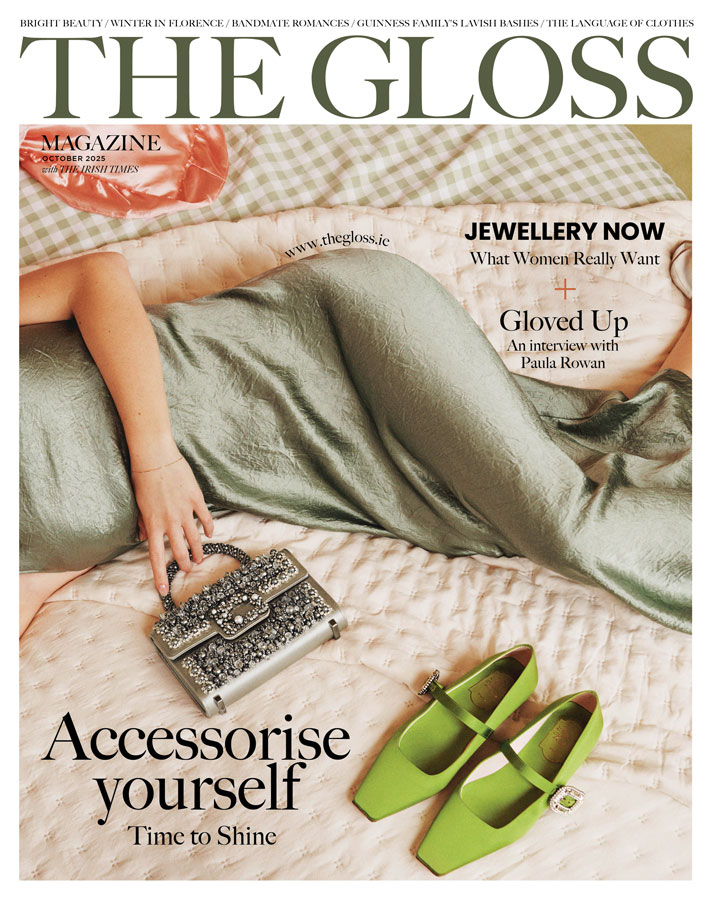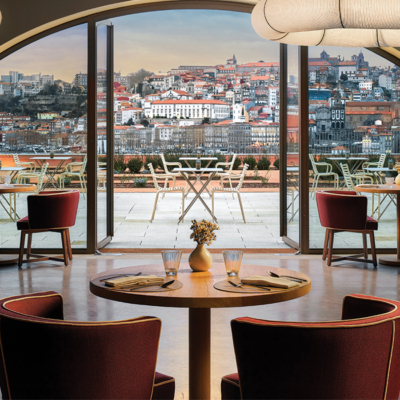Lee-Ann McCarthy lost her baby at 26 weeks. She shares what she learned from her grief journey in an effort to help others …
If you’re reading this, it’s likely you’ve experienced devastating loss. Something unimaginable that has changed you, altering the course of your life forever. Let me start by saying that I’m profoundly sorry that you must experience this horrendous pain.
Let me tell you, two years on, I’ve made it through and I’m still here. I’m writing this to share what helped me to navigate my journey through heart-breaking loss – ways of thinking and being that might help ease your path through grief.
I won’t dwell on telling you how grieving is a natural and inevitable human experience. There’s no right or wrong way to do it; everyone’s process is unique, and may manifest in various emotional and physical ways. There are no rules or timelines.
Where it began
Let me take you back to my story. I was 21 weeks pregnant with my second daughter, Willow, when our world shattered. At our anatomy scan, the mood quickly shifted from excitement to terror when the midwife went quiet and turned off the scanning machine. Our baby had a broken heart – literally. What followed was a whirlwind of appointments with consultants and invasive testing to understand what as wrong. Willow had an extremely rare genetic disorder (so rare, in fact, that there are only a few cases in the world) which meant she not only had severe heart abnormalities, but the disorder affected every part of her little body. When you hear the words ‘incompatible with life’, the enormity of their meaning doesn’t fully register – it feels like you’re living in some sort of horror show. Our beautiful baby girl was born sleeping at 26 weeks. I delivered Willow, held her close, and never wanted to let her go. Saying goodbye was the hardest thing that my husband and I have ever had to do. I can’t think about it or talk about it without tears in my eyes and an ache in my heart. Life can be so cruel.
The aftermath
If you’re newly bereaved, please know right now that your only job is to somehow survive. I think it’s important to hear that. It looks different for everybody. I presumed life immediately after loss would mean spending days crying in bed and fully focusing on the grieving process. But we had our two-year-old little girl at home who needed her parents and life had to appear normal for her. We had to do our best to grieve while still being present for her. And let me tell you – there were days when that alone felt like an endurance test.
Let go of any expectation of yourself. You’re in survival mode, so all bets are off for as long as it takes. I didn’t realise this at the time and I think it would’ve helped to hear those words – it would have taken so much pressure off.
Ultimate vulnerability
Never in my life had I felt so exposed, so raw. When something traumatic happens, our entire sense of how the world should operate can unravel. It’s as if the root system that anchored us to our understanding of life is shattered. Once you experience it, you can’t deny it anymore. You can’t unknow.
When I lost Willow, the full weight of this vulnerability didn’t hit me for a few months. I didn’t even recognise what was happening at first. I was fortunate to have a therapist help me understand: I had become hypervigilant about life and everything related to health. This hypervigilance led to a battle with anxiety. There were moments when I barely recognised myself. My life was getting smaller and I felt unsafe in the world.
How can we move from trauma to groundedness, finding peace even as we acknowledge that each day with those we love is not guaranteed? When you experience these moments, the key is returning to baseline. While a therapist can guide you through this process, there are approaches that you can try on your own. One powerful method is called ‘bottom-up regulation’ that addresses the dysregulation in your nervous system. You can achieve this through practices like breathing exercises, mindfulness, movement and other sensory-based interventions. I personally find meditation and breathing very effective for these moments, and I still use these tools regularly.
As time passes and you regain your footing in the world, these moments of radical vulnerability become less overwhelming. While these feelings may never completely disappear, you develop the capacity to understand and handle them.
What ‘acceptance’ really means
While it’s widely spoken about in Grief Models, I realised that acceptance was really the starting point of my grieving response. I found it helpful to reframe acceptance in my mind. It’s hard not to think of acceptance as passive resignation to what happened. You may have a million questions and no answers. There’s so much suffering that comes with that. The real question becomes: are we layering on additional pain by fighting against what has already happened?
I realised that the Stoics were right: acceptance is acknowledging what’s beyond our control while focusing on what we can control. Accepting the reality of the loss does not diminish the pain, but it creates space for healing. We can’t control death, but we can control how we process grief. You need to let the gravity of the loss land; it’s the only way to begin integrating it into your life.
Become an active participant in your grief
I understand why many people refuse to participate in this process. I just knew that I didn’t have a choice – I had to face the tsunami head on. It was the only way through. Looking back, I was naïve about this force of nature. I thought, if I could arm myself with enough knowledge – books, therapy, podcasts – I would be able to ‘cognitively’ make my way through the process. Like a good student, I followed every instruction. How wrong I was. Grief isn’t passive, it’s unpredictable and powerful. You hold on for dear life and try to make it through with your full mental, emotional and physical being.
This is why it’s important to really allow yourself to fully feel the emotions. When we push them away or numb them, they often resurface later with even greater intensity. Each wave of emotion, whether it’s overwhelming sadness, anger or even moments of unexpected peace, is part of your unique journey through grief rather than around it.
Just because time has passed doesn’t mean that you’ve healed and done the work. I read that pain is a symptom of the love we have for the person lost. There is profound beauty in that truth and I held onto it in my darkest moments.
Tune into your body
This leads to another vital framework I wish I had known. Grief isn’t just a ‘head-first’ experience – it’s a full-body descent. While our minds try to make sense of loss, our bodies carry the weight of grief in profound ways. By understanding grief as a whole-body experience, we can better understand why we need to care for ourselves completely, not just ‘think’ our way through. Even when you’ve done all the narrative work, your body may still hold the grief which is why the somatic piece becomes crucial.
When my grief therapist described my baby loss as an ’embodied’ experience, everything suddenly made sense. My body would experience postpartum whether I had a baby in my arms or not. Of course, not every loss is as obviously embodied, but it’s vital to understand how much your body holds the weight of loss in ways you might never expect – from exhaustion that seeps into your bones, tension that builds in your shoulders or heaviness that sits on your chest.
This is why you must look after yourself: rest when you can, nourish your body even when you don’t feel like eating and be gentle with yourself on the most difficult days.
Beware of the grief ambush
I first learned about grief ‘ambushes’ through Dr Lucy Hone’s brilliant book Resilient Grieving. I lost count of the times I hurried to put on sunglasses in the supermarket, hiding my tears. I felt broken, like I couldn’t manage my grief properly. But learning that these ambushes were a normal part of bereavement changed everything. Gradually, they began to derail me less. They don’t disappear as time moves on. I realised that grieving means accepting an unwanted truth: we must reconcile ourselves to the permanent absence of someone we never imagined losing. Now when a grief ambush comes, I don’t fight it or shame myself. I simply acknowledge it: “Oh, here it is. I will get through it.”
Relearning the world
There’s no returning to who you were before – you can only move forward. I’m sorry to be so blunt, but it’s true. I yearned to go back to who I was before: the woman who trusted in the universe, who had her life mapped out with her two little girls. But grief changes us fundamentally. The old version of ourselves exists only in memory. Master of Change by Brad Stulberg talks about three stages: Order, Disorder and Reorder. We bring forward our ‘through lines’ – the parts that stay constant when everything changes. Our values, strength, love. These become our foundation for rebuilding.
I know that this sounds daunting. Believe me, I resisted it too. But as I moved through this transformation, I began to really see the beauty in small moments. My connections with people grew deeper. I learned to truly be present because I now understand how precious each moment is.
Bittersweet takes on a new meaning
I remember being so confused in those early days, especially during celebrations – birthdays, family gatherings, Christmas. There was always an ever-present pang of sadness. I thought this feeling would pass, but I soon realised that this is life now. Joy and sorrow learn to coexist. You might think that the bitter would diminish the sweet – I certainly did at first. To reassure you: it’s not all darkness. Bittersweet moments become part of your new normal and add another layer of meaning to it.
Counter spells
My therapist also introduced me to the concept of counter spells, which immediately resonated. It sounds impossible to feel grateful when you’re drowning in loss. It almost feels wrong, like you’re betraying those you lost. But here’s the thing about gratitude – you can only find it in the present moment. It’s not about trying to forget, but about learning to see what’s still here. Finding tiny sparks of hope in the darkness. When you can let even a tiny bit of gratitude in, something shifts. You create space for appreciation. This is how we learn to live again. One moment at a time.
Finding your way forward
I want to end by coming back to the notion that there’s no roadmap through grief. These are just things that helped me make sense of my journey. Some days, you’ll have the strength to practice them. Other days, you’ll barely have energy to breathe. Both are absolutely okay. Here’s what I know for sure: grief changes us forever, but we can learn to carry it. Not by ‘getting over it’ or ‘moving on’, but by growing and knowing that we’re not alone on this path. Take what helps and leave the rest. Trust your own journey.
READ MORE: Navigating Mother’s Day Without Your Mum










